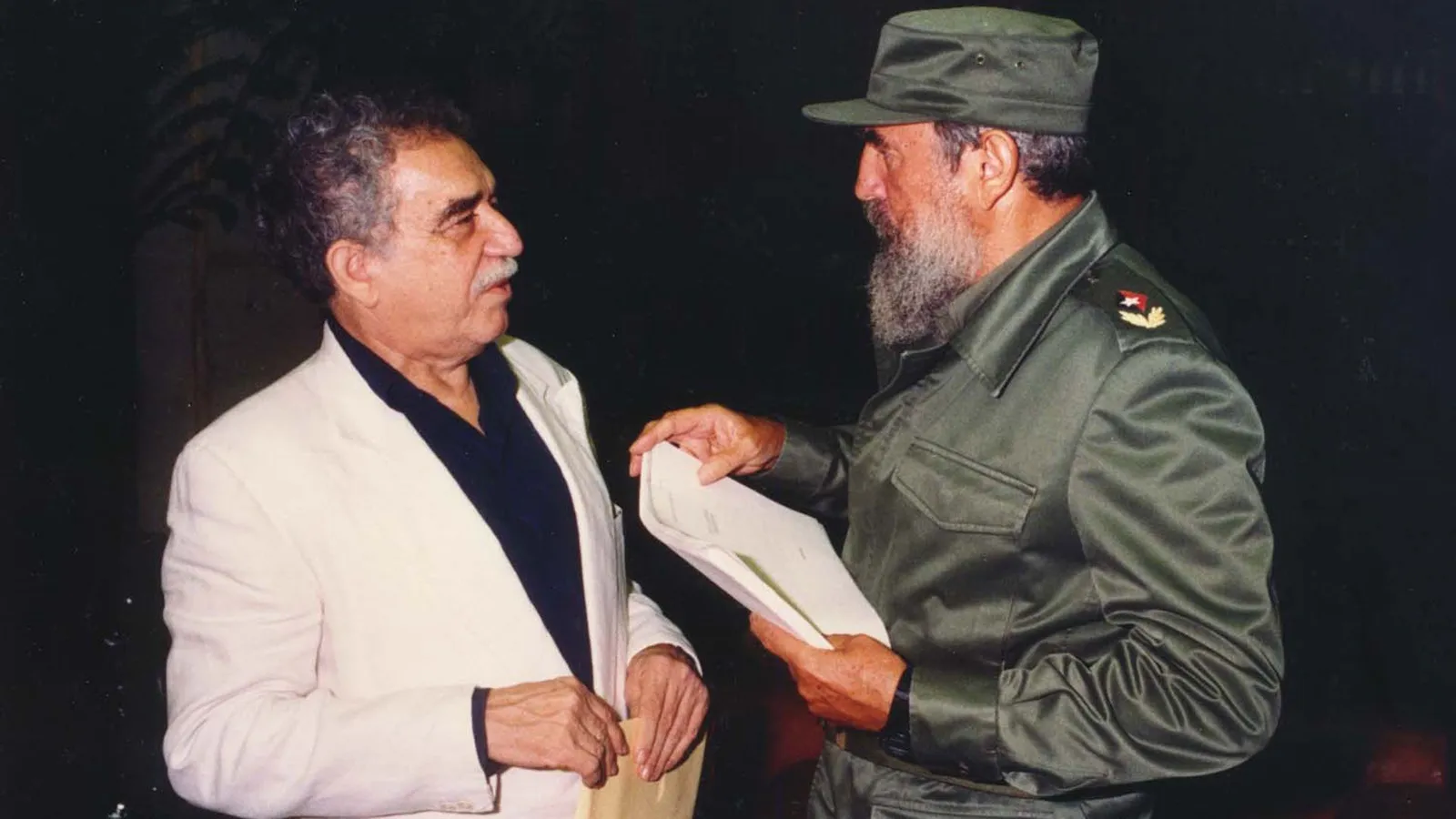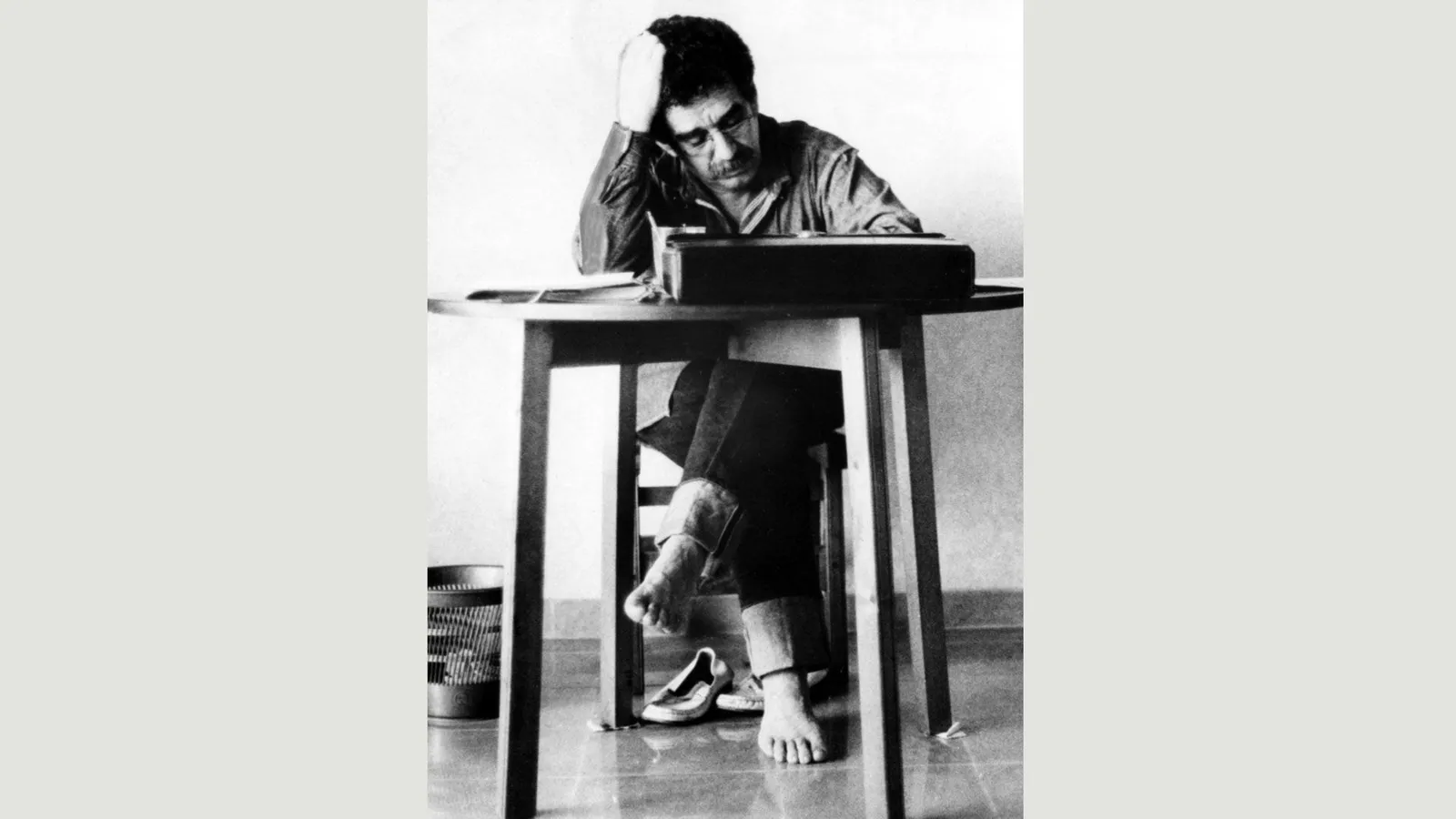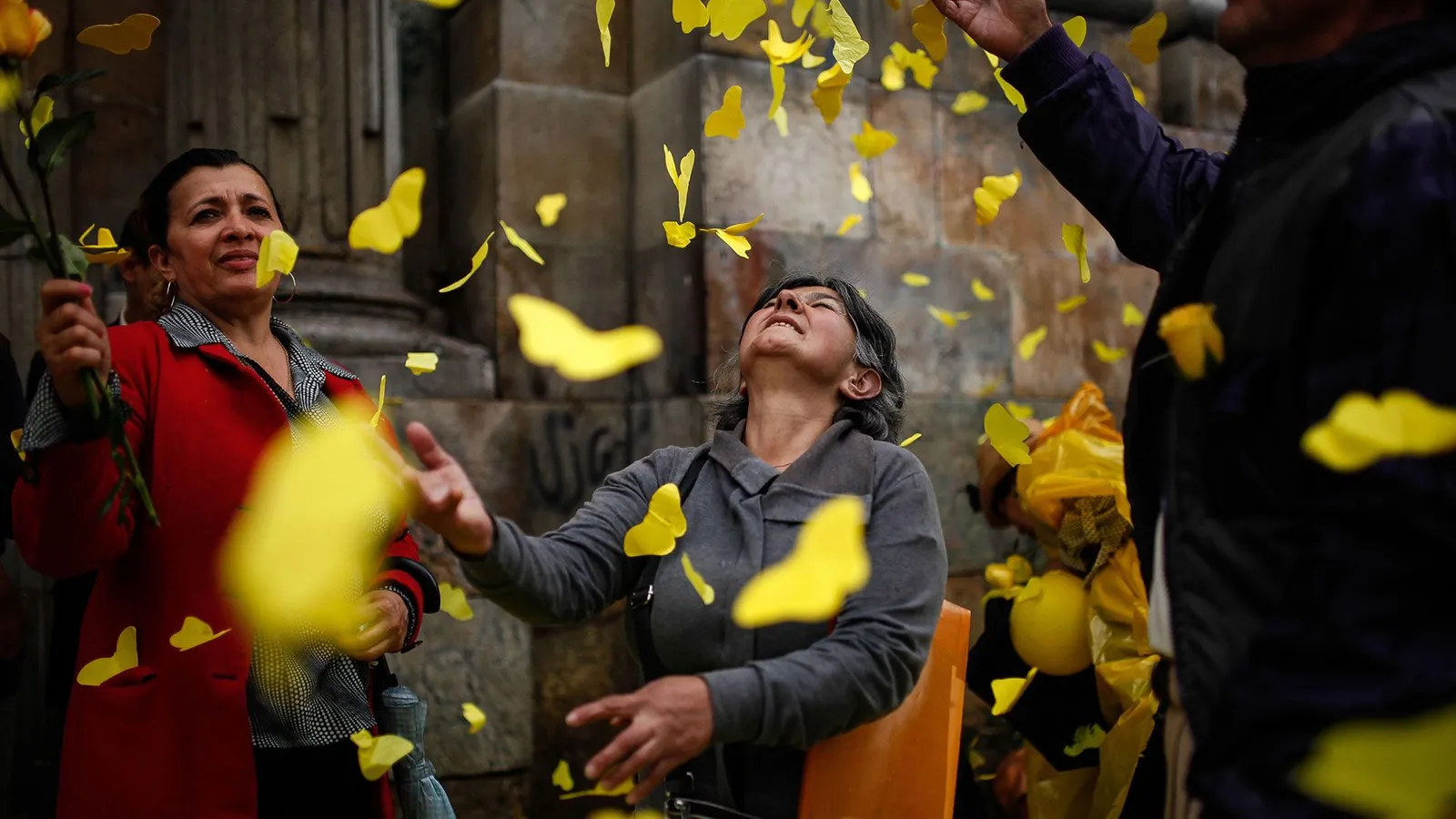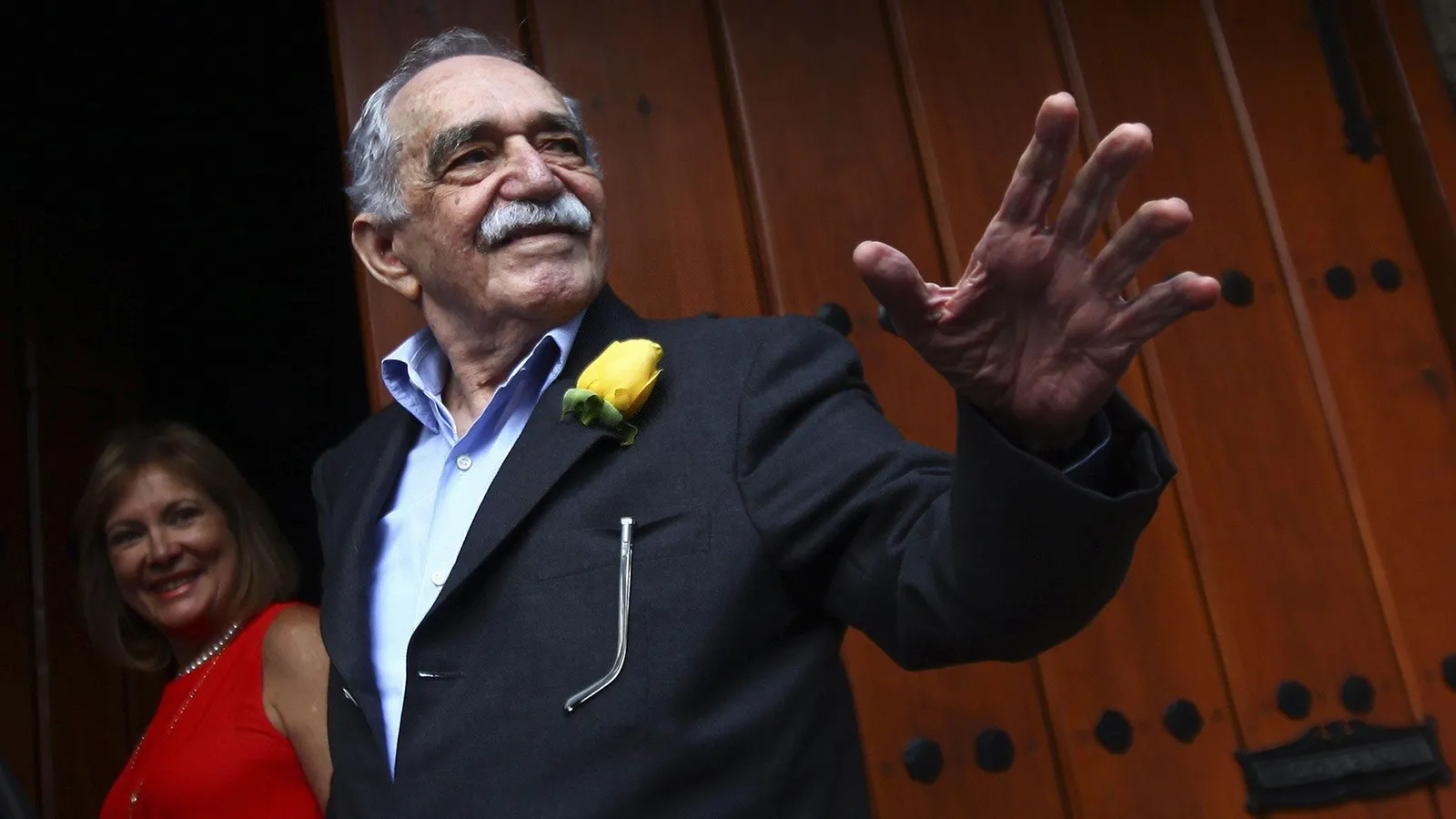How One Hundred Years of Solitude redefined Latin America When Gabriel García Márquez wrote One Hundred Years of Solitude, he reimagined the genesis of his continent. ......... “The world was so recent that many things lacked names, and in order to indicate them it was necessary to point”. .......... From his little studio in Mexico City, patiently composing on his typewriter, he reimagined the genesis of the continent and by doing so changed its future forever. .......... When García Márquez was in the first stages of his immense saga, he became fascinated with the turn of events in Cuba. What struck him the most was the real possibility of a new order for countries in this hemisphere, far from the pressure and demands of the United States. ......... it’s undeniable that the revolution had a major impact on the tone of One Hundred Years of Solitude: it gave García Marquez hope for the fate of Latin America. ...... He was living abroad – before settling in Mexico City he spent time in Caracas, Paris and Barcelona – all while nurturing his ambition to become a world-renowned novelist. ......... the family struggled to survive on his low wage as an international correspondent for a number of Spanish-language magazines and newspapers. His previous books had been highly praised yet a commercial failure. García Márquez knew he had a great story, but he just couldn’t find the right path for the epic novel he had in mind. ........ García Márquez had been thinking about the family in 100 Years for two decades before he sat down to write the book – and finished it in eight months ......... There are many legends – which, throughout the course of his life, he never bothered to confirm or deny – about how he found inspiration and overcame the writer’s block that plagued him. I choose to believe the version I read in Gerald Martin’s wonderful biography: “He set out with his family for a beach vacation in Acapulco, a day’s drive south. Partway there, he stopped the car – a white 1962 Opel with a red interior – and turned back. His next work of fiction had come to him all at once. For two decades he had been pulling and prodding at the tale of a large family in a small village. Now he could envision it with the clarity of a man who, standing before a firing squad, saw his whole life in a single moment.” .............. He ignored reality and wrote – possessed by the characters that had been whispering their stories into his ears ever since he was a small child .......... They drove back to their house, and she told him to start writing. She would take care of the household expenses as long as he stayed focused on the new novel. ......... he ignored reality and wrote – possessed by the characters that had been whispering their stories into his ears ever since he was a small child – for a solid eight months. .......... The saga of Macondo and the Buendía family immediately became a modern classic, often compared to the works of Cervantes and Shakespeare. “It’s the book that redefined not just Latin American literature but literature, period” ........ García Márquez was neither a historian nor a sociologist. He was a natural storyteller. ......... He was able to converge an extraordinary amount of information and transform it into a new mythology. That is the craft of One Hundred Years of Solitude: he pulled from different sources to create an alternate, hyperbolic birth of Latin American culture. And by doing so, he reinterpreted its nature......... He took a large part from the legends he heard during his childhood in Aracataca, the small Colombian town where he was born. These are the basis of the Caribbean oral traditions that lie beneath the novel’s skin. Then, he read William Faulkner as well as Greek and pre-Hispanic myths. And, finally, he took inspiration from Colombia’s violent history from the 18th to 20th Centuries. All these stories came together and ripened in his extraordinary mind, only to emerge as a different body, built using a symbolism of its own. ......... He borrowed the pace and rhythm from Vallenato, a traditional folk music from the city of Valledupar, which he combined with the tools of narrative journalism. García Márquez was also a fantastic reporter, and such skills are showcased in his prose. ........ As a young journalist in Colombia, I witnessed his supernatural ability to transform the trivialities of everyday life into magical tales. ......... caudillismo (the leadership of a ‘strongman’), machismo, rebellion, power, plagues, and political violence .......... “In spite of this, to oppression, plundering and abandonment, we respond with life. Neither floods nor plagues, famines nor cataclysms, nor even the eternal wars of century upon century, have been able to subdue the persistent advantage of life over death.” .............
magical realism is built on exaggeration
.The Secret History of One Hundred Years of Solitude A half-century ago, Gabriel García Márquez, after yet another visit to the pawnshop, sent his now signature novel to his publisher. As Solitude turns 50, Paul Elie interviews Gabo’s longtime agent—just weeks before her death, at 85—and discovers the events that led to a literary revelation. .......... Stuck up on the wall were charts of the history of a Caribbean town he called Macondo and the genealogy of the family he named the Buendías. Outside, it was the 1960s; inside, it was the deep time of the pre-modern Americas, and the author at his typewriter was all-powerful. ............ and the “solitude of fame,” as he would later put it, would inflict on him. ........... The novel came off the press in Buenos Aires on May 30, 1967, two days before Sgt. Pepper’s Lonely Hearts Club Band was released, and the response among Spanish-language readers was akin to Beatlemania: crowds, cameras, exclamation points, a sense of a new era beginning. ............. By the time García Márquez was awarded the Nobel Prize, in 1982, the novel was considered the Don Quixote of the Global South, proof of Latin-American literary prowess, and the author was “Gabo,” known all over the continent by a single name, like his Cuban friend Fidel. ..........
Unofficially, it’s everybody’s favorite work of world literature
and the novel that, more than any other since World War II, has inspired novelists of our time—from Toni Morrison to Salman Rushdie to Junot Díaz. ........... When García Márquez died, in April 2014, Barack Obama joined Clinton in mourning him, calling him “one of my favorites from the time I was young” and mentioning his cherished, inscribed copy of One Hundred Years of Solitude. “It’s the book that redefined not just Latin-American literature but literature, period,” insists Ilan Stavans, the pre-eminent scholar of Latino culture in the U.S., who says he has read the book 30 times. ........... The creator of contemporary fiction’s most famous village was a city man. ........... As the noose of dictatorship tightened, he went on assignment to Europe—and out of harm’s way. He had hard times there. In Paris, he turned in deposit bottles for cash; in Rome, he took classes in experimental filmmaking; he shivered in London and sent back dispatches from East Germany, Czechoslovakia, and the Soviet Union. Returning south—to Venezuela—he was nearly arrested during a random sweep by military police. When Fidel Castro took power in Cuba, García Márquez signed on with Prensa Latina, a press agency funded by the new Communist government, and after a stint in Havana he moved to New York in 1961 with his wife, Mercedes, and their young son, Rodrigo............ The city, he later said, “was putrefying, but also was in the process of rebirth, like the jungle. It fascinated me.” The family stayed in the Webster Hotel, at 45th and Fifth, and then with friends in Queens, but Gabo spent most of his time at the press office near Rockefeller Center, in a room with a lone window above a vacant lot overrun with rats. The phone rang and rang with calls from inflamed Cuban exiles who saw the agency as an outpost of the Castro regime they detested, and he kept an iron rod at the ready in case of attack. .......... When hard-line Communists took over the press service and ousted its editor, García Márquez quit in solidarity. He would move to Mexico City; he would focus on fiction. But first he would see the South of William Faulkner, whose books he had read in translation since his early 20s.Traveling by Greyhound, the family was treated as “dirty Mexicans,” he recounted—refused rooms and restaurant service.
“The immaculate parthenons amidst the cotton fields, the farmers taking their siesta beneath the eaves of roadside inns, the black people’s huts surviving in wretchedness…. The terrible world of Yoknapatawpha County had passed in front of our eyes from the window of a bus,” he would remember, “and it was as true and as human as in the novels of the old master.” ....... García Márquez struggled. He turned to screenwriting. He edited a glossy women’s magazine, La Familia, and another specializing in scandal and crime. He wrote copy for J. Walter Thompson. In the Zona Rosa—Mexico City’s Left Bank—he was known as surly and morose......... And then his life changed. A literary agent in Barcelona had taken an interest in his work, and after a week of meetings in New York in 1965 she headed south to meet him. ................ Our interview, she told me wearily, would be followed by a meeting with her lawyers—“a dirty business,” she said. ............. She and her husband, Luis, liked to read in bed. “I was reading García Márquez—one of the early books—and I said to Luis, ‘This is so fantastic, Luis, that we have to read it at the same time.’ So I made a copy of it. We both had enthusiasm for it: it was so fresh, so original, so exciting. Every reader says in his mind, of certain books, ‘This is one of the best books I have ever read.’ When that happens to a book again and again, all over the world, you have a masterpiece. That is what happened with Gabriel García Márquez.”............ And then García Márquez, having fully warmed to his guests, took out a sheet of paper, and with Luis as a witness he and Balcells drew up a contract declaring her his representative in all the world for the next 150 years. .......... She’d made a deal for the English-language rights to his four books. The payment? A thousand dollars. She had brought the contract, which she presented for him to sign. ........... The terms seemed onerous, even rapacious. And the contract also gave Harper & Row the first option to bid on his next work of fiction, whatever it was. “This contract is a piece of shit,” he told her. He signed anyway. .......... Balcells left to return to Barcelona; García Márquez set out with his family for a beach vacation in Acapulco, a day’s drive south. Partway there, he stopped the car—a white 1962 Opel with a red interior—and turned back. His next work of fiction had come to him all at once. For two decades he had been pulling and prodding at the tale of a large family in a small village. Now he could envision it with the clarity of a man who, standing before a firing squad, saw his whole life in a single moment. “It was so ripe in me,” he would later recount, “that I could have dictated the first chapter, word by word, to a typist.” ................ In the study, he settled himself at the typewriter. “I did not get up for eighteen months,” he would recall. Like the book’s protagonist, Colonel Aureliano Buendía—who hides out in his workshop in Macondo, fashioning tiny gold fish with jeweled eyes—the author worked obsessively. He marked the typed pages, then sent them to a typist who made a fresh copy. He called friends to read pages aloud. .............. She kept bill collectors at bay. She hocked household items for cash: “telephone, fridge, radio, jewelry” ..........they didn’t have the 82 pesos for the postage. They sent the first half, and then the rest after a visit to the pawnshop.
............. He had smoked 30,000 cigarettes and run through 120,000 pesos (about $10,000). Mercedes asked, “And what if, after all this, it’s a bad novel?” ............ The past is never dead. It’s not even past,” Faulkner observed, and with One Hundred Years of Solitude, García Márquez made the presence of the past a condition of life in Macondo—like poverty, or injustice. Over seven generations José Arcadio Buendía and his descendants are relentlessly present to one another: in their inherited names, their fits of anger and jealousy, their feuds and wars, their nightmares, and in the current of incest that runs through them—a force that makes family resemblance a curse and sexual attraction a force to be resisted, lest you and your lover (who is also your cousin) produce a child with a pig’s tail. ........... “Magic realism” became the term for García Márquez’s violation of natural laws through art. ........ Reading it, you feel: They are alive; this happened. ........... Eight thousand copies sold in the first week in Argentina alone, unprecedented for a literary novel in South America. Laborers read it. So did housekeepers and professors—and prostitutes: the novelist Francisco Goldman recalls seeing the novel on the bedside table in a coastal bordello. García Márquez traveled to Argentina, to Peru, to Venezuela, on its behalf. In Caracas, he had his hosts stick up a handwritten sign: TALK OF ONE HUNDRED YEARS OF SOLITUDE FORBIDDEN. Women offered themselves to him—in person and in photographs.......... It was seen as the first book to unify the Spanish-language literary culture, long divided between Spain and Latin America, city and village, colonizers and colonized. ............. its unforgettable triple-time first sentence: “Many years later, as he faced the firing squad, Colonel Aureliano Buendía was to remember that distant afternoon when his father took him to discover ice.” ............. The Book Review praised it as “a South American Genesis, an earthy piece of enchantment. ............. Signed up for $5,000 on the basis of a “piece of shit” contract, the book would sell 50 million copies worldwide, becoming a year-in-year-out fixture on the backlist. Gregory Rabassa watched with mingled pride and unease as his work—paid for in a lump sum “of about a thousand dollars,” like the work of a gardener “spreading manure on a suburban lawn”—became at once the most acclaimed novel in translation and the most popular. García Márquez himself read One Hundred Years of Solitude in the Harper & Row edition and pronounced it better than his Spanish original. He called Rabassa “the best Latin American writer in the English language.”.............. Gabo told Harvey Weinstein that he would grant him and Giuseppe Tornatore the rights, provided the movie was made his way. As Weinstein would recall: “We must film the entire book, but only release one chapter—two minutes long—each year, for one hundred years.” ........... “I was sitting in my office at Random House,” says Toni Morrison, then an editor with two of her own novels published, “just turning the pages of One Hundred Years of Solitude. There was something so familiar about the novel, so recognizable to me. It was a certain kind of freedom, a structural freedom, a [different] notion of a beginning, middle, and end. Culturally, I felt intimate with him because he was happy to mix the living and the dead. His characters were on intimate terms with the supernatural world, and that’s the way stories were told in my house.” ............. I got permission from García Márquez”—permission to write Song of Solomon, the first of a run of big, bold novels. (Many years later, Morrison and García Márquez taught a master class together at Princeton. It was 1998—“the year Viagra came out,” Morrison recalls. “I would pick him up in the morning at the hotel where he and Mercedes were staying, and he said, ‘The peell: the peell is not for us men. It is for you, for you women. We do not need it, but we want to please you!’ ”) ........... Díaz read the novel in his first months at Rutgers, in 1988. “The world went from black-and-white to Technicolor,” he says. “I was a young Latino-American-Caribbean writer desperately looking for models. This novel went through me like a lightning bolt: it entered through the crown of my head and went right down to my toes, redounding through me for the next several decades—up to right now.” .............. he came to see magic realism as a political tool—one “that enables Caribbean people to see things clearly in their world, a surreal world where there are more dead than living, more erasure and silence than things spoken.” He explains: “There are seven generations of the Buendía family. We are the eighth generation. We are the children of Macondo.” ............. The admiration for the author was universal. He was the laureate everyone could love. ......... In 1976, in Mexico City, García Márquez attended a screening of the film La Odisea de los Andes, for which Vargas Llosa had written the script. Spotting his friend, García Márquez went to embrace him. Vargas Llosa punched him in the face, knocking him down and giving him a black eye. .......... “And García Márquez said, ‘Now that you’ve punched me to the ground, why don’t you tell me why,’ ” Balcells told me, recalling the episode. Ever since, literary people in Latin America have wondered why. One story is that García Márquez had told a mutual friend that he found Patricia less than beautiful. A second is that Patricia, suspecting that Mario was having an affair, had asked Gabo what she should do about it, and Gabo had told her to leave him. Vargas Llosa has said only that it was “about a personal problem.” .................... For four decades, Vargas Llosa has categorically refused to discuss the episode, and he has said that he and Gabo made a “pact” to take the story to their graves. .......... “This was the book that enlarged the Spanish-language reading public to include intellectuals and also ordinary readers because of its clear and transparent style. At the same time, it was a very representative book: Latin America’s civil wars, Latin America’s inequalities, Latin America’s imagination, Latin America’s love of music, its color—all this was in a novel in which realism and fantasy were mixed in a perfect way.” ..........Maintaining one deck also eliminates headaches for founders. This is why we teach making a core 5 min pitch (10 sections) and adding everything else to the appendix so you can shorten or lengthen based on mtg length & goals. Save the headache of multiple files. https://t.co/qqVAiAVaHH pic.twitter.com/tSnivDBPGz
— Allison Byers (@apbyers) April 27, 2023
Longest Sentence in One Hundred Years of Solitude
“Nor had they asked her, even out of courtesy, why she was so pale or why she awoke with purple rings under her eyes in spite of the fact that she expected it, of course, from a family that had always considered her a nuisance, an old rag, a booby painted on the wall, and who were always going around saying thing against her behind her back, calling her churchmouse, calling her Pharisee, calling her crafty, and even Amaranta, may she rest in peace, had said aloud that she was one of those people who could not tell their rectums from their ashes, God have mercy, such words, and she had tolerated everything with resignation because of the Holy Father, but she had not been able to tolerate it anymore when that evil Jose Arcadio Segundo said that the damnation of the family had come when it opened its doors to a stuck up highlander, just imagine, a bossy highlander, Lord save us, a highland daughter of evil spit of the same stripe as the highlanders the government sent to kill workers, you tell me, and he was referring to no one but her, the godchild of the Duke of Alba, a lady of such lineage that she made the liver of president’s wives quiver, a noble dame of fine blood like her, who had the right to sign eleven peninsular names and who was the only mortal creature in that town full of bastards who did not feel all confused at the site of sixteen pieces of silverware, so that her adulterous husband could die of laughter afterword and say that so many knives and forks and spoons were not meant for a human being but for a centipede, and the only one who could tell with her eyes closed when the white wine was served and on what side and in which glass and when the red wine and on what side and in which glass, and not the like the peasant of Amaranta, may she rest in peace, who thought that white wine was served in the day time and red wine at night and the only one on the whole coast who could take pride in the fact that she took care of her bodily needs only in golden chamberpots, so that colonel Aureliano Buendia, may he rest in peace, could have the effrontery to ask her with his Masonic ill humor where she had received that privilege and whether she did not shit shit but shat sweet basil, just imagine, with those very words, and so that Renata, her own daughter, who through an oversight had seen her stool in the bedroom, had answered that even if the pot was all gold and with the coat of arms, what was inside was pure shit, physical shit, and worse even than any other kind because it was stuck-up highland shit, just imagine, her own daughter, so that she never had any illusions about the rest of the family, but in case she had the right to expect a little more consideration from her husband because, for better or for worse, he was her consecrated spouse, her helpmate, her legal despoiler, who took upon himself of his own free and sovereign will the grave responsibility of taking her away from her paternal home, where she never wanted for or suffered from anything, where she wove funeral wreaths as a pastime, since her godfather had sent a letter with his signature and the stamp of his ring on the sealing wax simply to say that the hands of his goddaughter were not meant for tasks of this world except to play the clavichord, and, nevertheless, her insane husband had taken her from her home with all manner of admonitions and warnings and had brought her to that frying pan of hell where a person could not breathe because of the heat, and before she had completed her Pentecostal fast he had gone off with his wandering trunks and his wastrel’s accordion to loaf in adultery with the wretch of whom it was only enough to see her behind, well, that’s been said, to see her wiggle her mare’s behind in order to guess that she was a, that she was a, just the opposite of her, who was a lady in a palace or a pigsty, at the table or in bed, a lady of breeding, God-fearing, obeying His laws and submissive to His wishes, and with whom he could not perform, naturally, the acrobatics and trampish antics that he did with the other one, who, of course, was ready for anything, like the French matrons, and even worse, if one considers well, because they at least had the honesty to put a red light at their door, swinishness like that, just imagine, and that was all that was needed by the only and beloved daughter of Dona Renata Argot and Don Fernando del Carpio, and especially the letter, an upright man, a fine Christian, a Knight of the Order of the Holy Sepulcher, those who received direct from God, the privilege of remaining intact in their graves with their skin smooth like the cheeks of the bride and their eyes alive and clear like emeralds.”










No comments:
Post a Comment